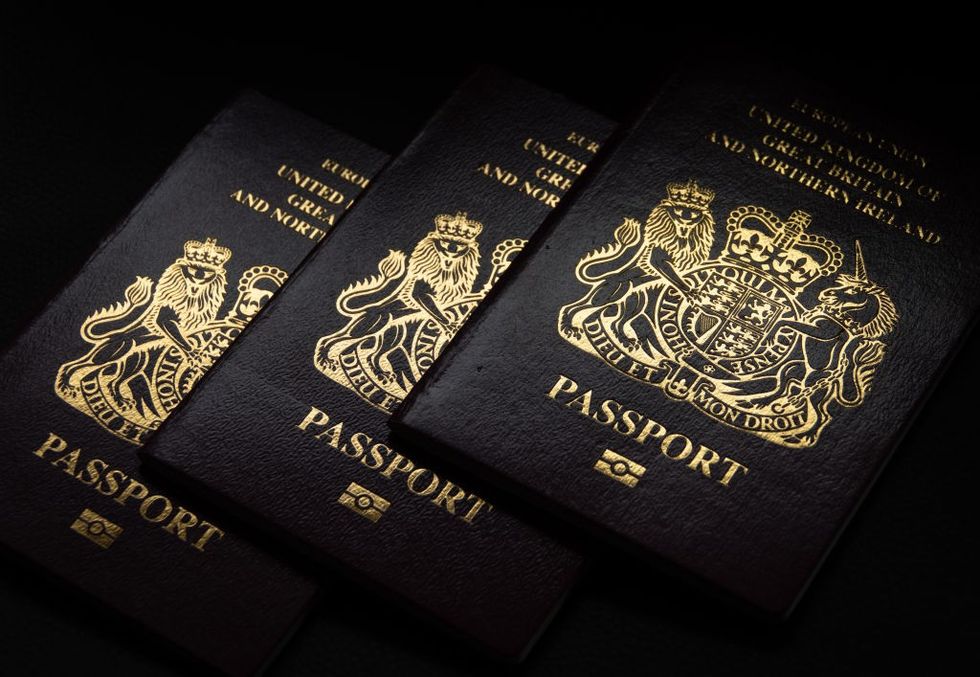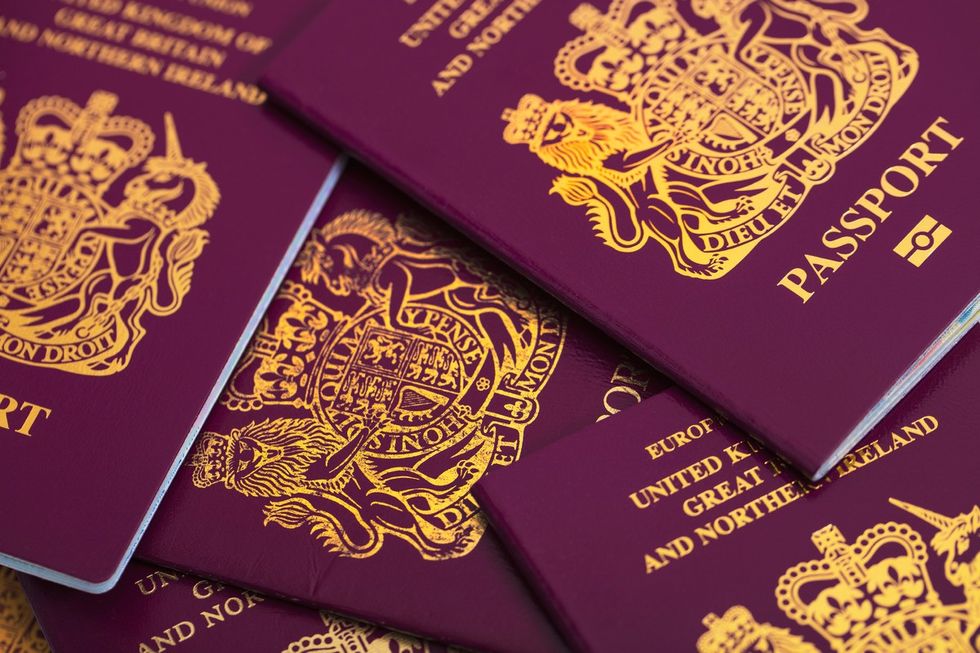Britons could be hit with new restrictions in Spain as Palma proposes crackdown on tourists
GB News
Passport prices will increase on April 10, with fast-tracked premium fees hitting £222
Don't Miss
Most Read
Trending on GB News
British tourists have been encouraged to make crucial passport checks before travelling abroad to avoid holiday disasters.
For travel to most EU countries post-Brexit, experts have warned that British passports must have been issued within the last 10 years and have at least three months of validity left.
This is more important than ever as passport prices are set to increase this month.
In light of this, the Home Office has issued important information to British travellers regarding the changes.

Passport prices will increase on April 10
GETTYCurrently, online renewals cost £88.50 for adults aged 16 or older. For children under 16, the price is £57.50. From April 10, online renewals will cost £94.50 for adults and £61.50 for children.
Those needing to premium fast-track their application currently pay £207.50, although this will increase to £222 once the change comes in.
Paper applications can be submitted at Post Office branches, however, these come with a higher price tag.
Travellers should allow sufficient time for passport processing, with the Passport Office advising up to three weeks for replacements.
The months leading up to school summer holidays typically see a surge in renewal applications.
Similarly, the pre-Christmas period experiences higher demand for passport services.
The alert comes as tourists continue to be caught out by varying entry requirements across different countries.
Since Britain's departure from the European Union in 2016, these strict rules now apply to most EU countries.
When travelling to EU countries, your passport must be less than 10 years old on the day you enter.
It must also remain valid for at least three months after the day you plan to leave. Those with burgundy passports should be particularly cautious when planning trips abroad.
LATEST DEVELOPMENTS

When travelling to EU countries, your passport must be less than 10 years old when you enter
GETTYPassports issued before 2018 may cause unexpected problems despite appearing to have plenty of validity remaining. This is because prior to 2018, any time left on your old passport was added to your new passport's validity period.
While the expiry date might suggest adequate time remaining, these passports could violate the crucial 10-year rule.
Holidaymakers should be aware of non-EU countries' requirements and check carefully before travel.
For destinations such as Australia, Canada or the United States, your passport needs to be valid for the entire duration of your stay.
Other countries have stricter requirements. Thailand, for example, demands that passports remain valid for at least six months from the day of entry.
If you need to renew your passport, apply online through the GOV.UK website for the most cost-effective option.







